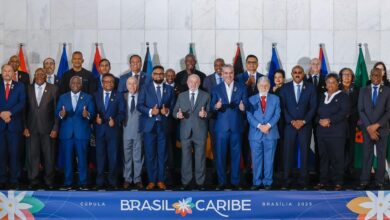The Economic Commission for Latin America and the Caribbean (ECLAC) and the Government of Chile will host the 9th Latin American and Caribbean Carbon Forum (LACCF 2015) next week with “an eye” on the forthcoming International Climate Conference in Paris.
In a release on Wednesday, the World Bank said TLACCF 2015 will take place in Santiago, Chile from September 9-11.
The conference will cover the latest developments in market-based mechanisms to address climate change, carbon trading, climate finance, and low-emission development.
Coming just months before the United Nations Climate Change Conference in December in Paris, where countries are to adopt a new, universal climate agreement, the LACCF 2015 is “an important opportunity for private and public-sector representatives to leverage market and finance opportunities for ambitious and effective climate action in the region,” the World Bank said.
Christiana Figueres, Executive Secretary of the United Nations Framework Convention on Climate Change, a co-organizer of LACCF 2015, said as countries are busy preparing and making public their intended contributions to a new universal climate change agreement to be adopted in Paris, “the Forum offers a golden opportunity to explore the use of market-based mechanisms and approaches to increase emission reduction ambition and stimulate sustainable development now and over the years and decades to come.
“An effective response to climate change requires strong interlinkages between politics, finance, technology and execution strategies,” she said, adding that the three-day event will cover the latest in climate policy, low carbon technology solutions, carbon pricing and climate finance options throughout eight plenaries, 12 thematic workshops and four side events.
“Putting a price on carbon will stimulate clean technology and market innovation, fuelling new, low-carbon drivers of economic growth,” said Neerad Prasad, Manager of the World Bank’s Climate Change Practice.
“Whether it is through carbon markets, performance measures or carbon taxes, a price on carbon can drive investment toward cleaner economies and we have seen tangible movement on the ground as a testament of this,” he added.
“The LACCF provides a platform for sharing experiences on carbon pricing and other policy innovations that will help the Latin America and Caribbean region transition to a low carbon economy,” Prasad continued.
The World Bank said different mechanisms and sources that help to support low carbon development goals, provide access to climate finance, and to promote innovation and policies addressing climate change mitigation and adaptation will be discussed.
Participants will also explore ways to leverage and scale up private investment in the region, and business leaders will learn how to incorporate environmental considerations into their business planning while preparing for future “clean” opportunities.
Furthermore, since achieving clean development requires building the capacity in the public and private sectors to identify adapt and deploy the most appropriate low carbon technologies, the World Bank said renowned climate change experts from both sectors will highlight the importance of innovation in the energy sector, Climate Smart Agriculture and land use, and transport, among others.
As momentum grows for transition to carbon neutral economies, the bank said this year’s regional carbon forum will also show how individuals, governments and the private sector can spur action through featuring achievements of Latin American carbon offset projects, and showcase the experience of those who are already helping to create a climate resilient future.







